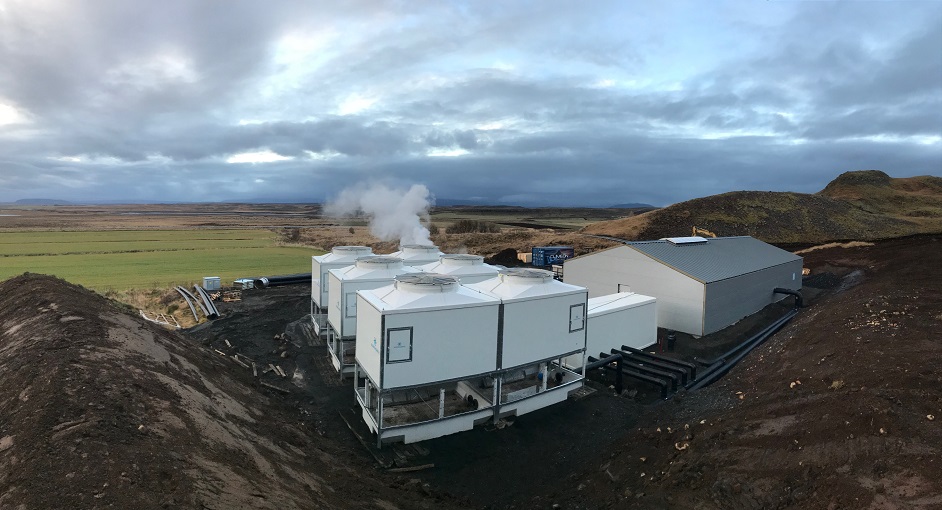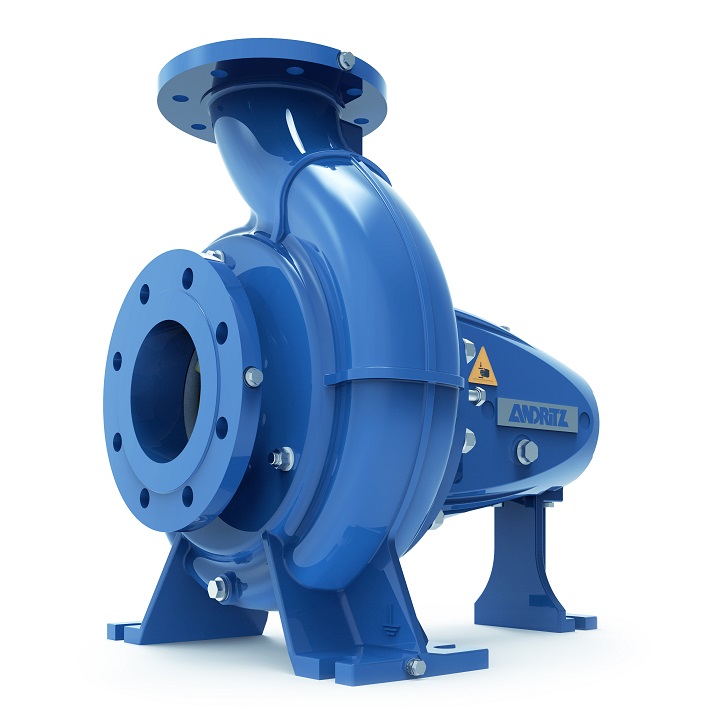

More than 50% of global energy consumption is wasted in the form of low-temperature heat. Energy-efficient ANDRITZ pumps now play a key part in a unique Heat Power system in re-using this cheap and renewable form of energy.
Global energy demand will continue to rise because the world population is expected to grow by 1.7 billion people until 2040 according to market experts. Based on forecasts by the International Energy Agency (IEA), the demand for energy will thus increase by one quarter in the next two decades.
To be able to meet this demand in the future, the IEA expects that annual investments of US$2 trillion (approx. €1.75 trillion) will be necessary. A gigantic sum, considering that all available resources are not even used sufficiently today. More than 50% of global energy consumption is wasted in the form of low-temperature heat.
This type of heat is generated as a by-product in various industries, like steel production or shipping, but also in geothermal energy. The latter can be found worldwide and is considered an unlimited source as it is available 24/7. This is a cheap and renewable form of energy with the definite potential to cover most of the demand, which today is covered with energy from well-established sources: coal, nuclear energy, oil, and gas. But how do you tap into these resources?
A businees for a better world This is Climeon’s motto. Founded in 2011 by Thomas Öström and Joachim Karthäuser, the Swedish company started building their first prototype for a Heat Power system the same year. This technology generates clean energy utilizing low-temperature heat, using precisely those resources that have so far remained unexploited. This system usually operates in a temperature range between 70°C and 120°C and uses temperature differences between warm and cold water to generate electricity.
The solution can be connected to any source of heat with differing flow rates and temperatures without any additional adjustments. Unlike wind and solar solutions, it operates independently of the prevailing weather conditions. Compared to traditional systems in this area, Climeon’s technology operates at a low pressure level, meaning the system has a compact and modular design and can easily be upscaled from a 150 kW module to several systems for larger installations generating a total of 50 MW. Moreover, its design guarantees that the solution can be operated at partial load with optimum efficiency. The module is started and shut down automatically as soon as fluctuations are detected in the heat source. It comprises only three moving parts: a turbine and two pumps.
The pumps play an essential role in this system, as they must pump out residual condensation left over from the liquid vapor used to drive the model's turbine. The challenge here is that hydraulic machines need to have an extremely low net positive suction head (NPSH). This number states the minimum pressure on the suction side of the pump, which every pump needs, depending on its design, to be able to work free of cavitation.
ANDRITZ was awarded the order to supply exclusively for the Heat Power system because the group met Climeon’s high, ethical requirements in terms of the company's sustainability, social responsibility, and environmental values.
The international technology group has been successfully supplying single-stage centrifugal ACP series pumps through its local sales partner Processpumpar AB in Sweden since 2015. “We chose to work with ANDRITZ not only because they could supply us with high quality pumps but also because of the great technical support they provided”, says Carina Osmund, head of Production and Sourcing at Climeon.
All-rounder ANDRITZ has been known globally for competence and innovation in engineering centrifugal pumps for more than 165 years. These decades’ worth of experience in engineering hydraulic machines and the company’s extensive expertise are reflected in the high standard of these pumps. They are robust and wear-resistant, thus meeting the highest customer expectations in terms of efficiency, lifetime, maintenance-friendliness, and cost-effectiveness in many different applications.
ANDRITZ single-stage centrifugal ACP series pumps are available with a highly wear-resistant, open-impeller design. They are true all-rounders. Thanks to their low axial thrust and open channels, these pumps are suitable for conveying many different media. Depending on the impeller design, they can convey slightly contaminated and contaminated media with some solids content and a consistency of up to 8%. As process pumps, they can cover a wide range of applications in different industries.
Moreover, their modular system provides high availability, enables the use of tried-and-tested components and reduces the number of spare parts to be kept in stock. This type of pump is ideal for applications in the Heat Power system in that it achieves favourable NPSH values. With efficiencies of more than 90%, the pumps also contribute towards saving valuable energy.
Equipped with a basis in which to integrate special monitoring sensors, these pumps can be monitored and optimized continuously in terms of general efficiency, operating behaviour, energy consumption, and other important measured values in the spirit of the Industrial Internet of Things.
Steel and ships Provided with these high-quality centrifugal pumps, Climeon supplies numerous clients in different industries worldwide with its Heat Power system. This includes SSAB AB (former Svenskt Stål AB), for example. With an annual production of eight million tons and annual sales of 55 billion Swedish kronor (approx. €5.2 billion), the company is one of the 50 largest steel producers worldwide. In accordance with its sustainability objective of a fossil-free steel industry by 2045, SSAB decided to make use of the residual heat generated during production processes by using Climeon.
The first step, the order for a pilot plant in 2014, was followed by an order for another module. Both plants have been in operation on the premises of SSAB's steelworks in Borlänge, Sweden ever since. They now convert previously wasted heat (e.g. hot water) into energy for steel production, with even the plant’s smallest Climeon unit saving up to 600 tons of CO2 emissions per year.
Apart from steel production, shipping also produces a large amount of heat that usually remains unused. In 2015, the Viking Line decided to install a Climeon system on their passenger ferry “Grace”, which sails between Sweden and the Finnish Åland Islands. After a successful test phase with significant CO2 and fuel savings, which were higher than expected, the Viking Line decided to expand its collaboration with Climeon.
On a ship like the Viking “Grace”, Climeon can produce up to 1 MW of power, thus reducing fuel costs by up to 5%. In 2016, the Climeon solution was installed on all new Viking Line ships and options for retrofitting on existing ships were tested. In August 2017, the Viking Line ended up placing a follow-up order to fully equip its newest passenger ferry.
In addition to the Viking Line, Sir Richard Branson’s Virgin Voyages has been a client of Climeon’s since 2016 and ordered a total of 18 Heat Power units for the first three vessels in its still expanding fleet. The Virgin Group’s founder is not only a client of Climeon, but also an indirect investor. He is a part of Breakthrough Energy alongside several other leading global businessmen like Jeff Bezos, founder and CEO of Amazon, or Bill Gates, founder of Microsoft and Co-Chair of the Bill & Melinda Gates Foundation.





